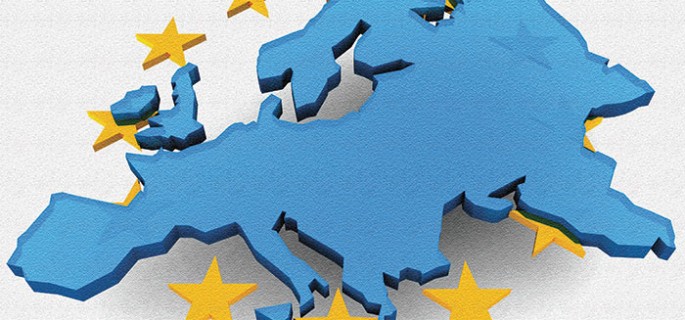What will the EU referendum mean for markets?

The opposing sides of the EU referendum campaign have each laid claim to the key issues surrounding a potential Brexit. The two camps have traded blows over sovereignty, economics and the political ramifications of leaving. But what are the major issues posed by the referendum and its aftermath, as seen by the panel of a recent Money Marketing and Fund Strategy roundtable on the subject?
Currency markets
Currency markets have been at the vanguard of Brexit-related nerves. Investors have made their feelings clear from the outset: sterling has sold off savagely versus the euro and the dollar, as the referendum has edged closer, with daily movements heavily influenced by polling. Elsewhere, other UK assets have been rejected by international investors, many of whom are taking a “wait and see” approach, but perhaps not to the same extent.
Square Mile Consulting and Research head of investment Jason Broomer said: “To date, sterling seems to be taking the strain. People are reflecting their views with sterling rather than the equity market, where there are some winners and losers.”
However, JP Morgan Asset Management chief market strategist for UK and Europe Stephanie Flanders said not all sterling’s weakness is related to a potential Brexit. There are other things going on, such as the US putting up interest rates. She said: “The dollar/sterling rate is quite reliably related to interest rate expectations. The weakness of sterling reflects that but, even with that in mind, it is weaker than you’d expect.”
Flanders said markets would panic on a leave vote, or even if polling suggested such a vote was likely, as markets still tentatively believe the UK will remain. She believed this would be seen in sterling and parts of the equity market but added: “One of the challenges from an investment standpoint is that the implications are far from clear-cut, for all the reasons that leaving the EU are not clear-cut.”
So the immediate response may be a sell-off but, in the longer term, the direction of sterling is unpredictable.
Interest rates and the gilt market
Both the “leave” and “remain” camps say interest rates may rise in the opposite scenario. Certainly, the UK has a large current account deficit and is, to some extent, reliant on the kindness of strangers to support it (around a quarter of the gilt market is owned by foreign investors). It may be that interest rates would have to rise if there were a significant run on sterling. Equally, if a Brexit depressed economic growth, it may make an interest rate rise less likely.
Broomer said: “It is still not clear what is going to happen with long-term interest rates and the gilt market. If we pull out, it could be argued that long-term rates will fall as a result and investment flows may slow down.”
It has been mooted that the UK could lose its coveted AAA-rating in the event of an “out” vote, though the panel held mixed views as to the impact. Capital Economics UK economist Paul Hollingsworth said: “The rating agencies tend to react to old news. The things that would drive a downgrade would be known anyway, so I don’t think it would have a big effect.”
Lazard Asset Management head of UK equities Alan Custis was more cautious: “The fact that we can say ‘these are the range of outcomes’ shows the difficulty of the analysis. With the deficit where it is and growing in the short-term, there could be a serious run on sterling in the event of an exit vote. I’m not as sanguine about credit ratings. I know they are backward-looking but they still influence markets. When the US lost its AAA-rating, it created a significant air pocket.”
Flanders admitted that markets are still not totally prepared for an “out” vote: “If we vote out, the pound could see a severe shock and we could also see it at the short-end of the gilt curve.”
GDP
The estimates for the long-term impact to GDP vary considerably, with wildly different figures being put forward by both camps. The shorter-term hit is easier to predict. Both JP Morgan Asset Management and Capital Economics believe the hit to UK GDP in the short-term is around 1 per cent to 1.5 per cent. Flanders said: “Given a 2 per cent growth rate, it would be a significant negative, but it may not push us into a recession.”
On the longer-term impact, Hollingsworth said: “The first thing to point out is that no one really knows. Estimates vary from +10 per cent to -10 per cent of GDP depending on what assumptions you make. It’s uncertain because no one understands how trading relationships will be rebuilt or the impact on migration.
“The benefits of a Brexit have probably been over-stated but so have the negatives. The true outcome will be somewhere in the middle. Our view is that while there would be a short-term hit, in the long-run, the UK would probably do OK. Firms would adapt, new trading relationships would be agreed. There are other things that are more important: would the UK gain anything in productivity growth? If so, it might outweigh even the more pessimistic estimates. It’s very difficult to say how the country would fare, but we’re at the optimistic end.”
Broomer added: “It’s really difficult to imagine leaving the EU as being an economic positive. However, the fact it is such a marginal issue is more to do with some of the disappointments we’ve received from joining.”
Europe
The debate has, to some extent, neglected the likely impact in Europe. The UK remains an important consumer of goods and services and the eurozone economy would be impacted by its departure. According to Flanders, the eurozone may take a short-term hit of 0.2 per cent to 0.3 per cent of GDP. “Again, this should be put in the context of limited growth – at around 1.4 per cent,” she said.
Custis believes the longer-term risk is that a Brexit calls into question the whole EU project: “Depending on the terms of our departure, others may want to leave.”
Hollingsworth agreed: “UK assets would underperform compared to the US but less so compared to Europe because of the impact it would have on the European economy. The short-term hit to the UK might be a bit more severe but ultimately it is the longer-term issues that will dominate and we agree it could undermine the whole long-term project.”
Flanders added: “If you believe the growth we’re seeing in the eurozone is the best you can get with all the quantitative easing, if you want to see the growth rate rise, that requires further integration. That is made harder by the loss of political capital from disengagement of the UK.”
The renegotiation process
A Brexit vote brings considerable uncertainty for companies, particularly as it will represent only the start of the renegotiation process. Flanders said: “The day after the vote, every multinational with a relationship with Europe will be asking ‘what implications does this have for my cost structure?’ ‘What are the terms?’ And the fact we might have two years on the same terms isn’t necessarily important because there’s a lot of uncertainty about the future.”
As Custis pointed out, Canada took seven years to negotiate trade agreements with the EU and the eurozone policymakers are unlikely to give the UK an easy ride for fear of contagion. He said: “After two years, we will be out. But are we Norway-out or Turkey-out? Is this going to be clearer? If I’m putting a new car plant down, for example, will it be in the UK?”
Flanders said: “The Brexit lobby has been pushed to have more concrete conversations about what it is looking for. It seems clear now that no one is looking for a Norway or Switzerland option. To be in a place where you are subject to all the rules but not in control of deciding them is not viable.
“We could unilaterally declare that we’ll open our borders and become like Hong Kong with a World Trade Organisation-style set up. That is logical and practical but it may be politically uncomfortable after a vote based on wanting to close borders and stop immigration. If that’s the likely model, what implications does that have for productivity? If we are less integrated with Europe and less open, that tends to go with lower productivity.”
The Scottish question
It seems inevitable that an “out” vote would ultimately trigger another referendum in Scotland, albeit perhaps not immediately. Flanders said: “I don’t think they would call a referendum they were not sure of winning, particularly with the oil price where it is. There is also still a lot of uncertainty about the legal issues.”
There is also the question of whether Scotland would qualify for EU membership, given the current economic weakness. Custis doubts it would because the economy is so heavily weighted to oil. Flanders points out that the deficit has ballooned in response to the oil price.
What if the UK stays?
But what if the UK votes to stay? Axa Wealth head of investing Adrian Lowcock argued that a definitive vote to remain would be positive for markets and consumer confidence but worries that it may commit the UK to closer integration. Flanders pointed out Prime Minister David Cameron had a clear commitment to not discriminating against non-euro countries but questioned whether this could last through 15 years of concerted fiscal and economic integration.
Holligsworth believes a “remain” vote would provide a boost for the economy. He said: “There are some signs that it’s been weighing on activity and if we see a remain vote, I think economic growth would pick up in Q3 and Q4. Sterling will probably rally as well, although there are other things that would limit that, such as the deficit. But we would see a period of stronger growth.
“There may be a shift in interest rate expectations. Economist expectations are for an increase in rates in Q1 of next year. A remain vote could shift attention back to a potential rate rise.”
Investors may get some clues on the likely outcome in the run up to voting day. Sterling has recently seen a substantial rally on the back of a recent poll suggesting a strong surge for the “remain” camp. Markets still appear to be hoping for such a vote and so an “out” vote could present a significant shock. The question may be the extent to which pent-up investment returns if investors get the result they want.
Source: Fund Strategy





























